Lake Yogo : Kansai’s Secret Snow Covered Lake
The natural landscape of the Kansai region is rich with deep forests and numerous mountain chains, but it doesn’t experience much snow. Sure–it can get cold in the winter, but regular snowfall is unheard of. However, there is one place in Kansai where you can enjoy an abundance of snow: Lake Yogo.
Getting to Yogo
The small town of Yogo is an hour and thirty minutes away by special rapid service from Osaka. It is only several stations away from Nagahama.
If you want to make sure whether or not there is snow or not in Yogo ahead of time, check Roadnet Shiga. This website will tell you how much snow is distributed throughout Shiga Prefecture. (See the part of 余呉町中之郷)
By the way, make sure to bring your snacks as there is no convenience store near the station though there are several vending machines now and then that sell warm beverages, which are always great portable hand warmers.
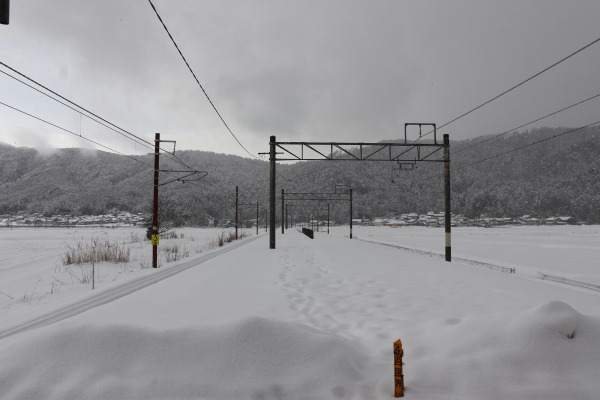
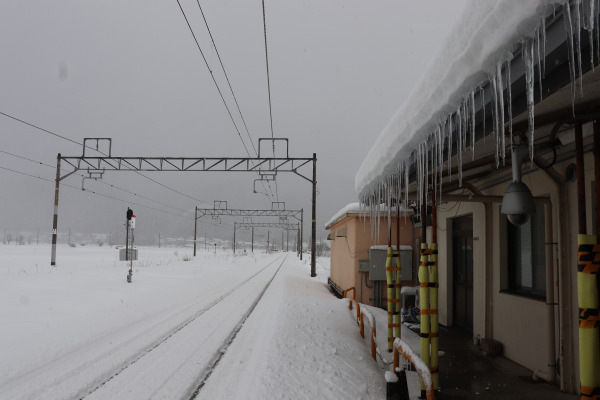
Mt. Kongo or Mt. Gozaisho are two other locations in the Kansai region that regularly experience large amounts of snow, these mountains easily take two to three hours to climb.
The great point of Yogo is that once you get out of the train, it is super snowy. Sometimes there can even be too much snow! It was 50cm (almost 1.5 feet) the day when we visited but sometimes it can be more than a meter…Considering that Osaka only gets around 5cm of snow at most, 50cm is a lot!!
Yogo is actually the only place in West Japan designated as a Special Heavy Snow Region by Japan’s meteorological agency.
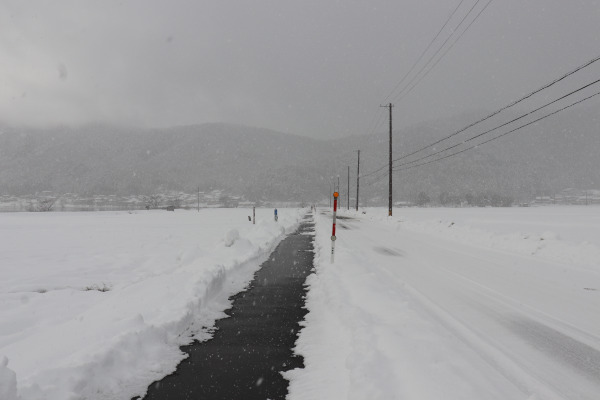
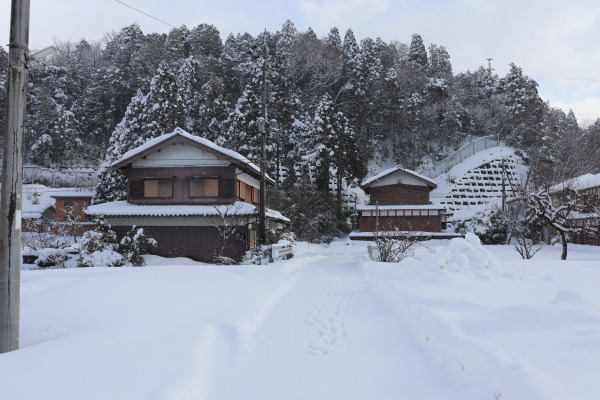
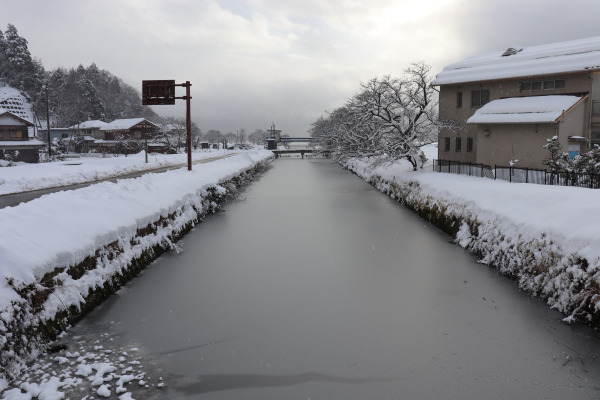
Lake Yogo
Lake Yogo is a small lake located 15 minutes from Yogo station, separated from Lake Biwa by Mt. Shizukadake. Mountains surround the lake and are responsible for creating the snowy scenery and limiting the wind making it a popular spot for reflection photography. In winter, smelt fishing is quite popular on the north shore of the lake, where people enjoy fishing and there are several restaurants as well.
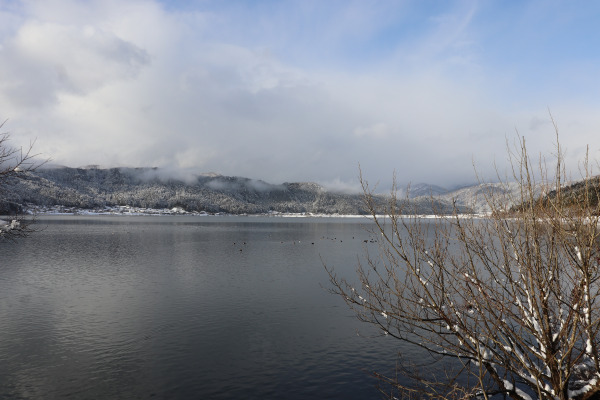
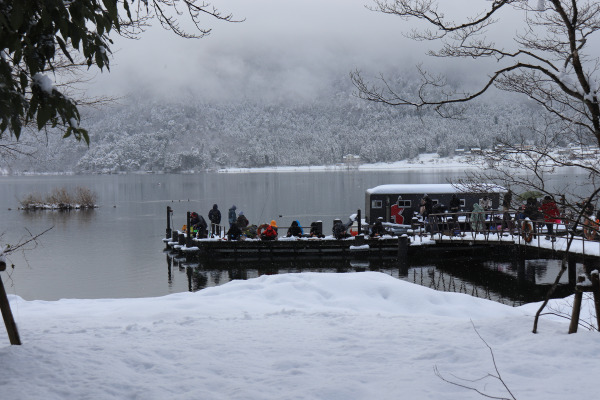
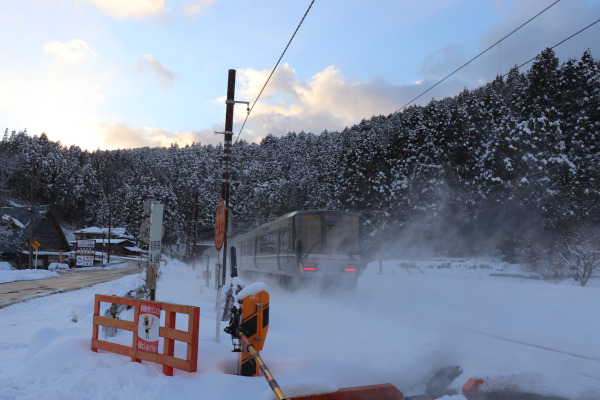
From the north shore, there’s a road that circles the lake. There is also a nature trail that goes around Lake Yogo, but it was completely buried in snow when we got there. However, it is pretty safe to walk on the road, as it doesn’t connect anywhere (it just circles the lake), and because there is often so much snow, the traffic is not heavy at all, and people drive slowly.
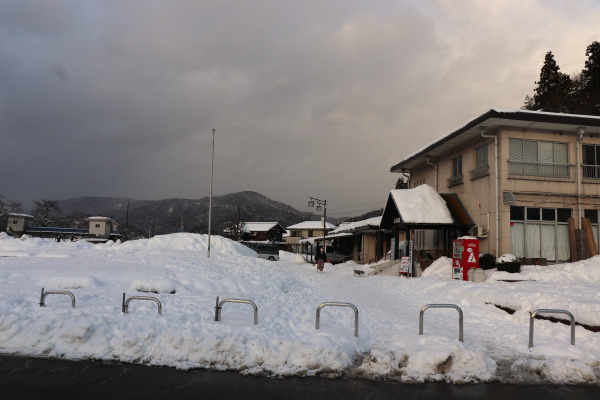
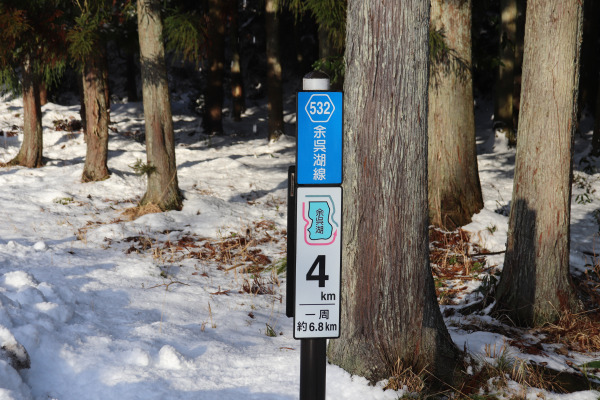
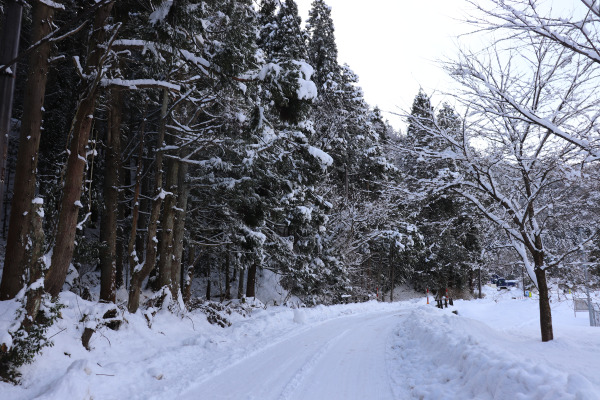
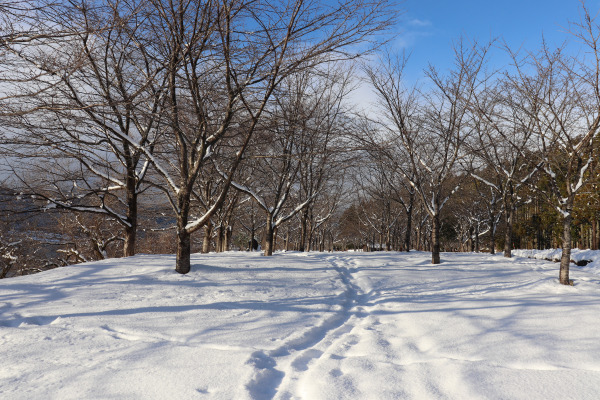
It had been snowing since we arrived in Yogo, but gradually the sun came out as the day went on. The weather can quickly be subject to change here.
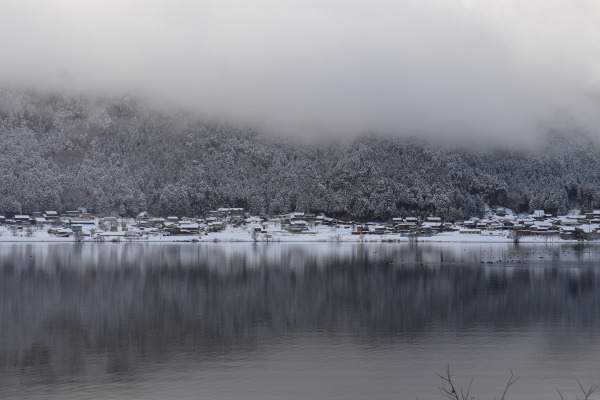
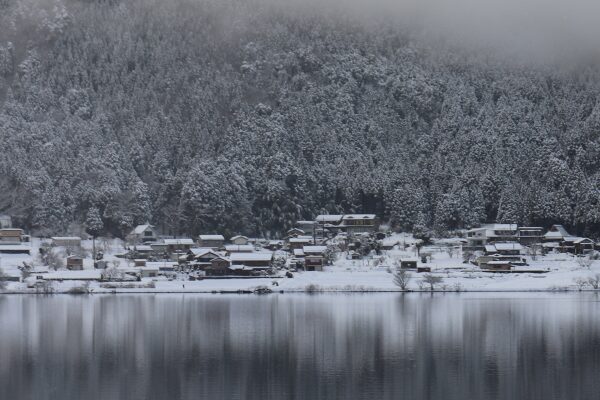
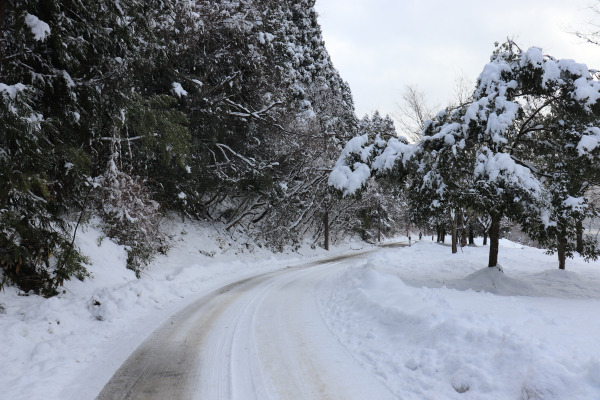
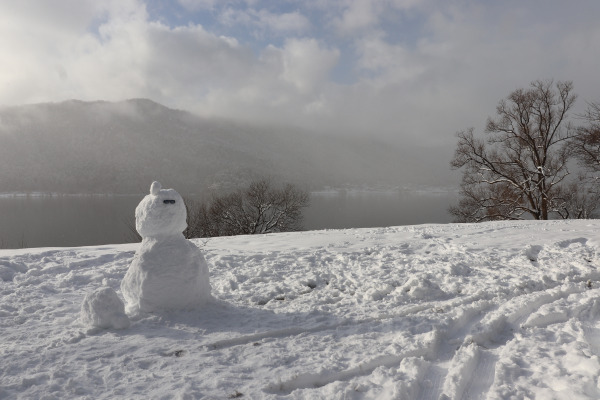
Access to Mt. Shizugatake from Lake Yogo
From the southern point of the lake, you can hike up Mt. Shizugatake, which is only 1 km away. I heard that from the top of the mountain you can see both Lake Biwa and Lake Yogo. Unfortunately, we couldn’t go because the snow was blocking the trail.
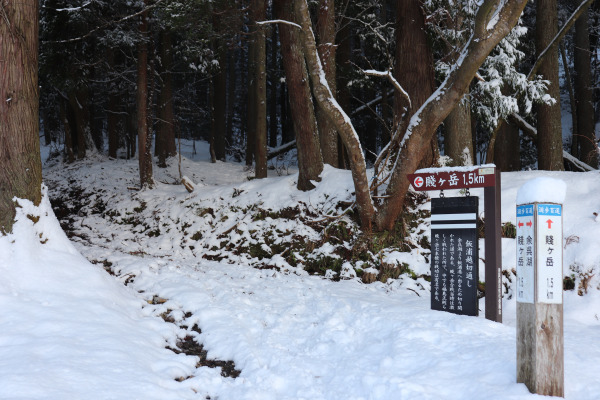
Shiga’s Snowiest Village, Nakakawachi
If you go further north from the lake and cross the mountains you will reach Fukui Prefecture in the Hokuriku region. Between these two points is Nakakawachi. This tiny village is the snowiest part of Shiga Prefecture. It typically snows around 1-2m (3-7 feet). The worst winter was in 1980 when they experienced nearly 6m (20 feet) of snow! Unfortunately, the village is 15km from Yogo, so that is a journey for another day.
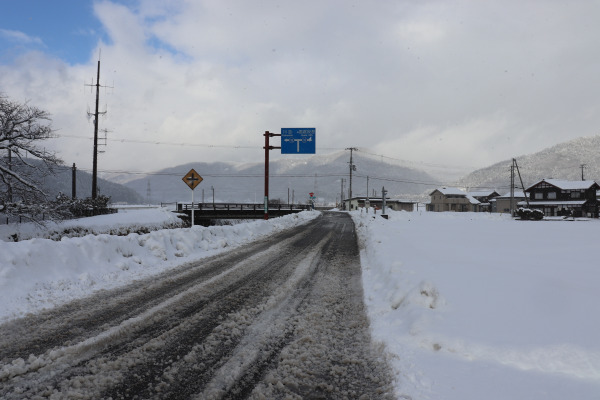
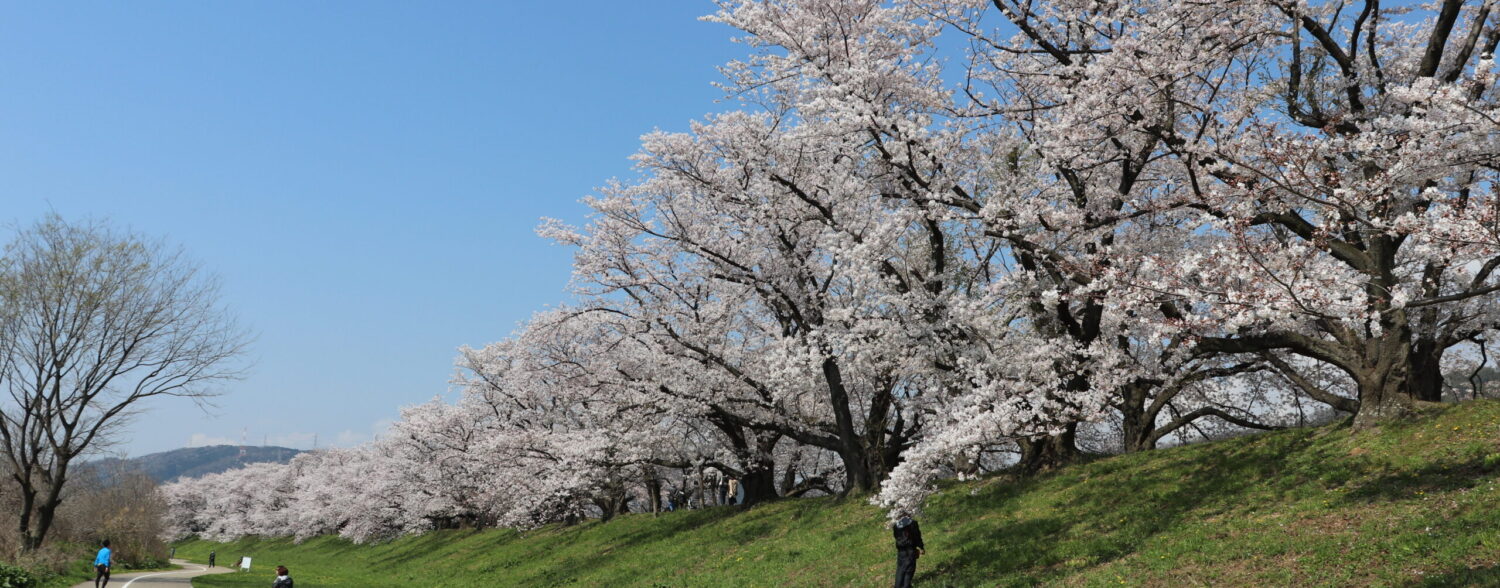
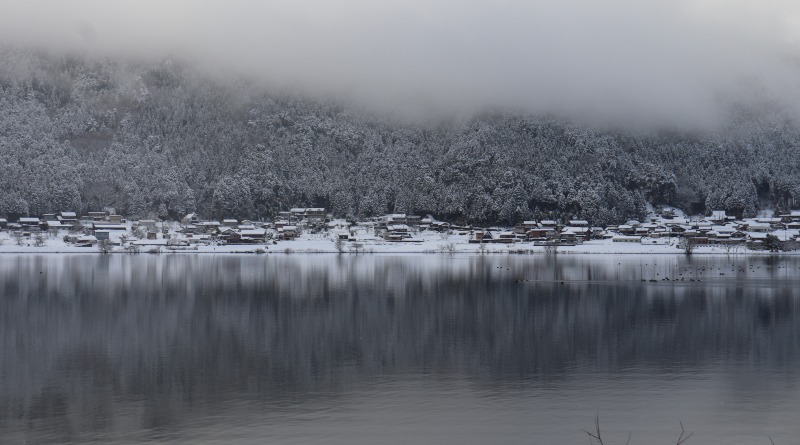
Leave a Reply